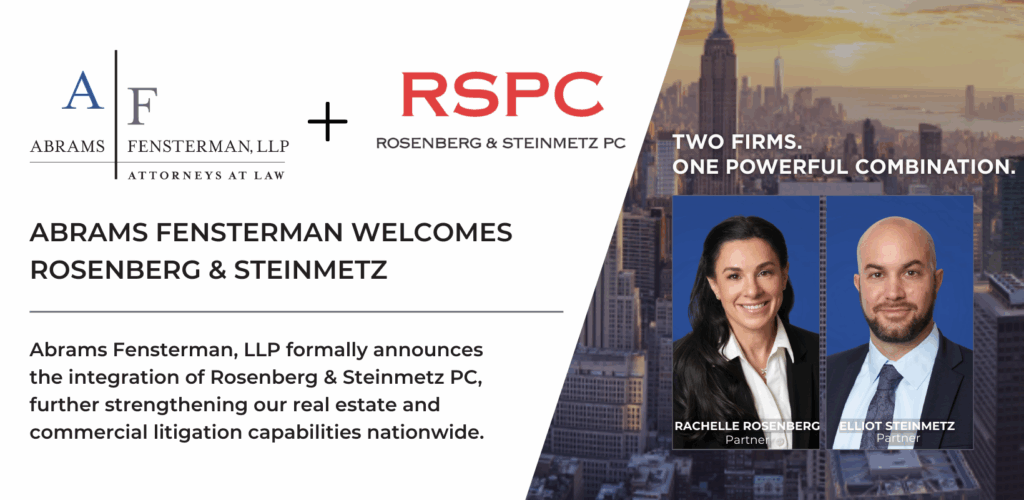By Justin Kelton
Justin T. Kelton is a partner at Abrams, Fensterman, Fensterman, Eisman, Formato, Ferrara, Wolf & Carone in New York. He frequently represents clients in business disputes requiring application of Delaware law by New York courts. The following is a Q&A with Kelton about this niche.
How Did You Get Involved in Litigating Issues of Delaware Law in New York Courts?
My first job after law school was at a boutique that specialized in bet-the-company disputes in courts throughout the country. Because of the nature of those cases, we were regularly confronted with questions of Delaware law, regardless of the forum of the case. That position required me to quickly get up to speed on Delaware law and its implications for our clients. As a result, I built a strong knowledge base in Delaware corporate law and, over the years, I’ve continued to build on that foundation.
What Are the Most Common Types of Actions in New York that Require Application of Delaware Law?
Disputes involving corporate control, shareholders’ rights and fiduciary issues often touch upon Delaware law in one of two ways. First, in many cases, the companies or contracts at issue are governed directly by Delaware law, and those cases clearly require mastery of the DGCL. Second, even in cases where Delaware law may not be directly controlling, New York courts often look to Delaware courts for guidance on corporate and fiduciary issues, since Delaware courts have a docket chock-full of these matters. In cases involving significant corporate governance issues, it is not unusual for New York judges and attorneys to reference the reasoning from Delaware decisions as a guideline for their own analysis.
What is it about New York Courts that Makes them an Effective Forum for Adjudicating Issues of Delaware Law?
New York’s Commercial Division has become a premier forum for resolving complex business disputes involving knotty legal issues and large amounts in controversy. The Commercial Division justices regularly handle sophisticated corporate cases involving subject matter that implicates Delaware law, including things like business divorces, shareholder disputes, derivative actions and issues relating to board oversight and accountability. The Commercial Division is a great venue for fast-moving, high-stakes business litigation.
Have there Been any Recent Decisions by New York Courts Addressing the Intersection of Delaware and New York Law?
Two recent cases come to mind. In Deckter on Behalf of Bristol-Myers Squibb v. Andreotti, 170 A.D.3d 486 (N.Y. App. Div., 1st Dep’t, 2019), the court grappled with whether to apply Delaware’s or New York’s standard of appellate review to analyze a dismissal of a derivative suit for failure to make a demand. The court noted that the New York Court of Appeals usually applies an abuse of discretion standard in such cases. However, the Appellate Division in Deckter decided to apply Delaware’s de novo standard of review to analyze the lower court’s dismissal, since the entity at issue was a Delaware corporation.
In Martin Hilti Family Trust v. Knoedler Gallery, 2019 WL 2024808 (S.D.N.Y. May 8, 2019), U.S. District Judge Paul Gardephe of the Southern District of New York drew attention to a significant difference between the requirements to demonstrate a de facto merger under New York and Delaware law. Specifically, under New York law, it is sufficient to allege that shareholders of the selling corporation hold an indirect interest in the assets, whereas under Delaware law, the continuity of ownership element is only met if the shareholders of the predecessor corporation acquire a direct ownership interest in the successor corporation.
As a New York Lawyer, what do You do to Stay Current on the Latest Developments in Delaware Law?
I follow major developments in Delaware corporate law by reading important decisions, following the Delaware Business Court Insider and many of the excellent blogs that cover these issues, researching and writing articles on significant developments in Delaware business disputes (including for Delaware Business Court Insider), and consulting with my Delaware-based colleagues. Staying on top of these issues has allowed me to move quickly and efficiently to meet clients’ needs when a case involving Delaware law comes across my desk.
What Would You Advise Parties in New York Courts Faced with Questions Involving Delaware Law?
Delaware has developed an efficient and effective body of law for addressing and resolving major corporate disputes. New York’s courts, and especially the Commercial Division, regularly deal with Delaware corporate law and are adept at interpreting and applying the relevant precedents. If you have a significant case in New York involving issues of Delaware law, make sure to work with counsel who is up-to-date on the latest cases and trends to help you achieve the best possible outcome.
Justin T. Kelton is a partner at Abrams, Fensterman, Fensterman, Eisman, Formato, Ferrara, Wolf & Carone where he practices in the firm’s commercial litigation department, focusing on resolving significant disputes in federal and state courts. He can be reached at 718-215-5300 or [email protected].
Reprinted with permission from the June 12, 2019 edition of the Delaware Business Court Insider © 2019 ALM Media Properties, LLC. All rights reserved.
Further duplication without permission is prohibited. ALMReprints.com – 877-257-3382 – [email protected].





